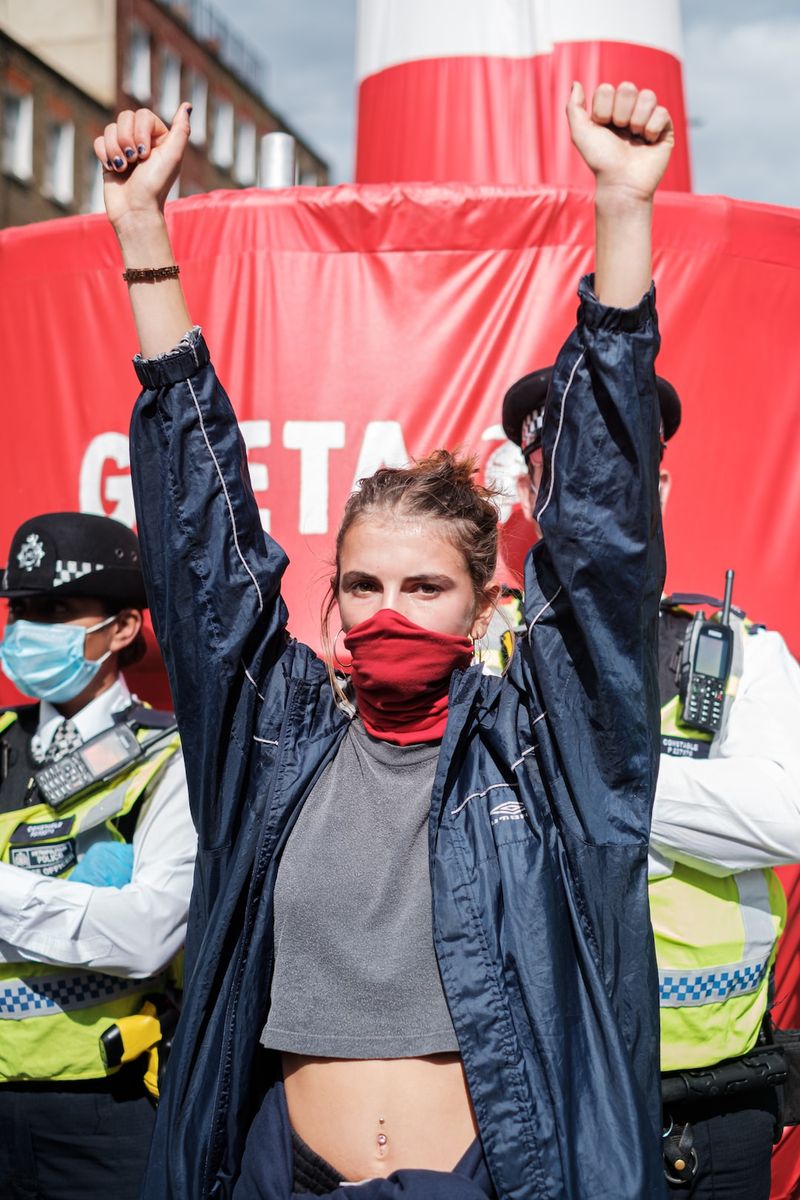Table of Contents
Activists Face Prosecution for Protest Against Destructive Gas Imports
The Arrest and Detention
On April 29 in Zeebrugge, Belgium, a group of 22 activists from Greenpeace staged a peaceful action against Fluxys, an LNG transport company, to denounce their increase in US liquefied gas imports into Europe. Four of these activists, Nina, Juri, Kelly, and Paula, are now facing prosecution. In a recent interview, they shared their experiences during the protest, arrest, and subsequent detention.
Juri, one of the climbers who scaled the gas terminal, described voluntarily descending from the terminal after the action had achieved its goal. However, there was a significant police presence, and the activists had to identify themselves before being taken to the police station. Kelly, who handled the social media posts about the action, was initially unaware that they would be arrested. She was on an escort boat and had to follow the maritime police to shore to be handcuffed.
During their 48 hours of detention, the activists faced various challenges. Paula mentioned the difficulty of communication as the police did not speak English, leading to confusion about the grounds for arrest. The police were initially brusque, limiting the amount of water provided, refusing to flush the toilet adequately, and subjecting the activists to their cigarette smoke. Juri described their time in the cell without a clock, making it difficult to keep track of time, with neon lights continuously on even at night. The treatment varied depending on the police officers present, highlighting a power imbalance. After two nights, they were interrogated and subsequently allowed to leave.
Philosophical Discussion on Activism and Climate Crisis
When asked about their regrets, especially considering the challenging experience in custody, the activists expressed no regrets. Nina stated that after two nights in prison, she felt stronger and believed the action was worth participating in due to the media attention and increased public awareness. Juri emphasized the importance of not allowing oppression to deter their fight for climate action and a liveable future. Paula light-heartedly regretted eating too much sugar during the action but remained committed to taking action.
The activists firmly believed in the significance of actions like the one they participated in. Nina argued that with the warnings of scientists about the climate crisis being consistently ignored, taking to the streets becomes the only option to promote effective climate action. Juri stressed the need to address the underlying causes of climate change rather than treating the symptoms, highlighting the catastrophic consequences experienced by communities in the Global South due to LNG production. Paula pointed out that some companies involved in harmful activities near extraction areas do not listen, necessitating direct action.
Regarding their motivations for climate activism, Juri expressed frustration with “business as usual” and the lack of urgency in addressing climate change despite decades of knowledge. Paula spoke about wanting to be able to say that she did everything possible to prevent global destruction, while Kelly emphasized the need to hold big companies accountable and shift focus away from individual actions to systemic change.
Prosecution and Reflections
When asked about their feelings on facing prosecution for their participation in the action, Paula expressed sadness at seeing the justice system prosecute those trying to protect others while sparing the companies causing harm. Juri argued that the real “criminals” were those who continue to rely on fossil fuels and disregard the multiple crises the world is facing. Nina expressed disappointment, shock, and anger at the reaction from those trying to intimidate and deny the right to protest, while allowing climate criminals to go unpunished.
In conclusion, the story of these Greenpeace activists facing prosecution for their protest serves as a reminder of the ongoing battle between climate activists and industries contributing to the climate crisis. It highlights the sacrifices activists are willing to make to raise awareness and demand urgent action. The activists believe that direct actions are necessary to break through the indifference and inaction that have characterized the response to the climate crisis. Their resolve and determination exemplify the sentiment shared by many in the climate movement, that the time for incremental change has passed, and radical action is needed to secure a sustainable future.

<< photo by Ehimetalor Akhere Unuabona >>
The image is for illustrative purposes only and does not depict the actual situation.
You might want to read !
- Russian Human Rights Defender Convicted for “Discrediting” the Armed Forces: A Blow to Freedom of Expression and Civil Liberties
- Turkey’s Top Court Reinforces Suppression of Human Rights Advocates
- The Republic of Rwanda: Unveiling the Disturbing Global Playbook of Suppression
- The Power of Reliable and Efficient Public Transport: Showcasing Tokyo, Manila, and Tarragona
- Russian Justice System Under Fire: The Urgent Need to Halt Arbitrary Prosecution of Aleksei Navalny’s Defense Team
- Greenpeace’s Urgent Plea: Governments Must Slash Plastic Production by 75% by 2040
- The Repression Game: Unveiling Rwanda’s Global Playbook of Silence
- Introducing The Climate Justice Walk: Empowering People’s Journey for Climate Justice
- Activists on Trial: Fighting Against Fluxys’ Harmful Gas Imports